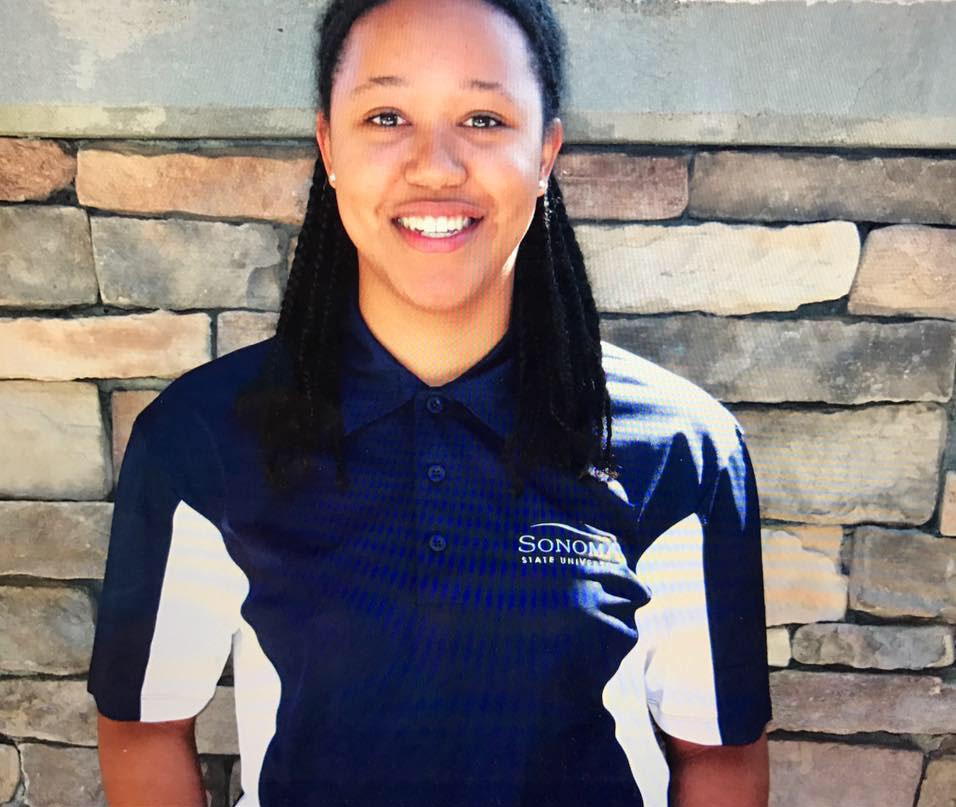When Miah Crockett first stepped onto Sonoma State University, she never imagined that in five years she would be speaking at her commencement for science and technology as the first African-American woman in Sonoma State history to earn an electrical engineering degree.
In fact, she never would have even known about the university if it wasn’t for basketball. At age 17, Crockett was invited to campus by Sonoma State basketball coach Mark Rigby, who hoped to recruit her. Crockett’s intention, at that point in her life, was to prioritize playing basketball. However, her focus soon shifted and she decided to instead dedicate her college career to academics.
Instead of participating in the late night basketball practices Crockett said she originally envisioned for herself, she would instead embark on a difficult yet rewarding journey to receive her bachelor’s degree in electrical engineering.
The road to accomplishing this feat was not easy by any means, Crockett said. The first hurdle was the difficulty of being 500 miles away from her family.
Crockett said it was not only homesickness that made the distance hard, but also not being around for her father, who is diagnosed with multiple sclerosis. This always weighed heavily on Crockett’s mind during her time at Sonoma State.
Crockett said her father was one of the main reasons she wanted to pursue an electrical engineering degree.
“I wanted to get the degree and create some sort of device that would not only help him, but also help people in the same situation,” Crockett said. Her desire to help others and pursue a major that would be financially beneficial, along with her curiosity on how things worked, lead her to choose electrical engineering.
The hardest challenge for Crockett during her college career was the isolation she felt being the only woman in almost all her engineering classes, she said. In all of her years at Sonoma State, Crockett had only one engineering class where there was another female. She often sat in the back of her classes and felt secluded, even voicing her dislike of team projects.
“It’s hard to succeed when you feel you are alone,” Crockett said.
Crockett felt solace and support when she met electrical engineering teacher Sara Kassis, whom she credits for helping her with resumes and pushing her to write the commencement speech for her graduation in May.
Kassis described Crockett as an inspiration. She said only 11 percent of female students are pursuing electrical engineering, and Crockett being the first female African-American student to graduate with an electrical engineering degree “can inspire others to follow their dreams no matter the obstacles.”
“For me, I see that as an inspiration, to be persistent and accomplish goals even though a person is outside of their comfort zone,” Kassis said.
Crockett credits perseverance, hard work, and even her sports mentality she learned in basketball for pushing her through the years.
Because of the struggle she endured being the only woman in a lot of her classes, and her time in the women’s engineering club, Crockett said she is very passionate and supportive in encouraging women in STEM majors.
Crockett said she advises all women in the STEM field “to stay with it.”
“It’s not going to be easy by any means, but it will definitely be worth it. No one can take away all the hard work you put in to get your degree,” Crockett said. “It is just up to you to prove all the people who said you couldn’t wrong.”
Crockett said she has big plans for the future. She starts her first engineering job this December and is excited to begin her next journey and career as a young engineer. But she is not stopping there. “In the long run, I want to be my own boss and I plan on making it happen,” Crockett said.



































